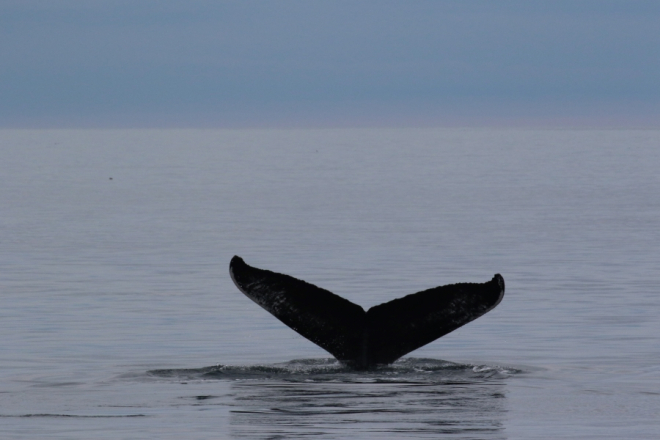Over 11,000 Sightings of Whales and Dolphins Recorded in Scotland’s Seas

During 2024, 11,039 encounters of whales, dolphins, porpoises, and other marine life were reported to the Hebridean Whale and Dolphin Trust (HWDT) by members of the public, or citizen scientists. Over 65,000 animals have been sighted in Scottish waters, from 17 different species.
The data was collected during research expeditions run by the Trust and by people reporting what they’ve spotted through their community sightings network, Whale Track.
HWDT is a marine conservation charity which harnesses the power of citizen science to gather data. For thirty years people have been driving the Trust’s conservation efforts forward by getting involved with their citizen science initiatives. Over that time, a massive amount of data has been gathered which is used to better understand and protect species in Scotland’s seas.
Dr Lauren Hartny-Mills, HWDTs Conservation Manager said:
“People are key to protecting whales, dolphins and porpoises in Scotland and the data they gather underpins the research and conservation work undertaken by the Trust. Whale Track now has more than 7,000 registered users and our expeditions have been running for 22 years!
"We’d like to thank everyone who has joined an expedition or reported a sighting, it’s an incredible public effort.”
The most recorded species was the harbour porpoise, the smallest cetacean found in our waters and resident all year-round. The common dolphin was the second most sighted species. Once a rare sight in Scotland’s seas, the common dolphin is now the most regularly reported dolphin species. The minke whale was the most regularly reported whale species.
During research expeditions in 2024, over 4,500 animals were recorded, including humpback and fin whales. More than 100 people joined expeditions between April and October and surveyed over 8,000 km of Hebridean waters – the equivalent of sailing from Scotland to Canada and back again!
The Whale Track community reported more than 60,000 animals; from a lone beluga whale off Shetland, to tracking John Coe and Aquarius, the only two members of the West Coast Community of killer whales seen in recent years, travelling up the Sound of Mull. The Whale Track community of citizen scientists plays a vital role in helping monitor and track animals in Scottish seas, particularly coastal species like bottlenose dolphins and rarer visitors like humpback and killer whales.
Data gathered during 2024 will be added to the substantial databases held by the Trust. HWDT data is used by researchers, other conservation organisations and scientists to better understand the different species found in Scotland’s waters. The data is also used by Government bodies to inform conservation policies and develop more effective measures to protect these animals.
Species monitoring over the long-term is key to understand the state of our seas. Data gathered over many years can be used to understand patterns of species presence and distribution, to assess whether populations are stable, increasing, or declining, and to identify drivers of change and detect and monitor threats.
HWDT’s long-term research programmes rely on people becoming citizen scientists by joining an expedition or reporting sightings through the Whale Track app or website. HWDT are recruiting volunteers to join research expeditions in 2025 and to report what they see on Whale Track. Winter is a great time to watch for whales, dolphins and porpoises in Scotland. During December, the Whale Track community has reported humpback, minke and killer whales, bottlenose and common dolphin, and harbour porpoise in Scotland’s seas.
HWDTs citizen science programmes are a fantastic way to contribute to protecting Scotland’s seas. Please report what you’ve spotted through the Whale Track app or you can join an expedition during the 2025 field season.
For more info visit www.hwdt.org
Pic credit: Humpback Whale taken during 2024 expedition HWDT Copyright


